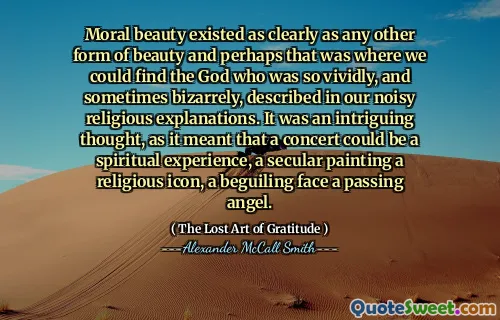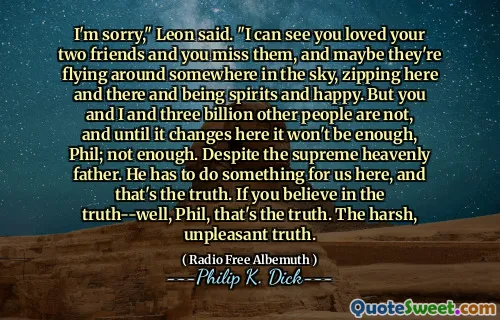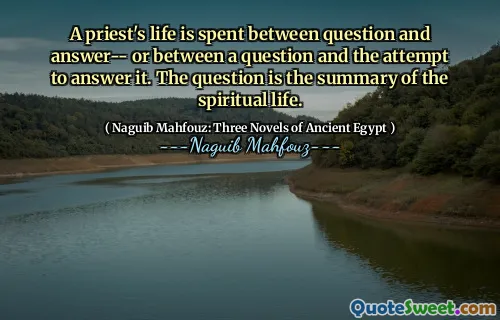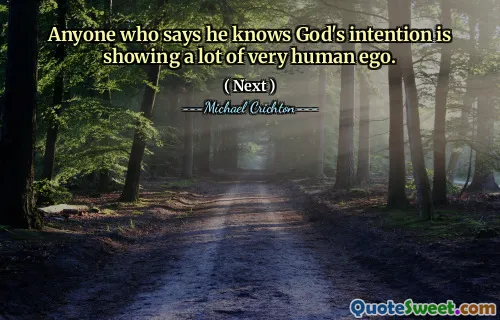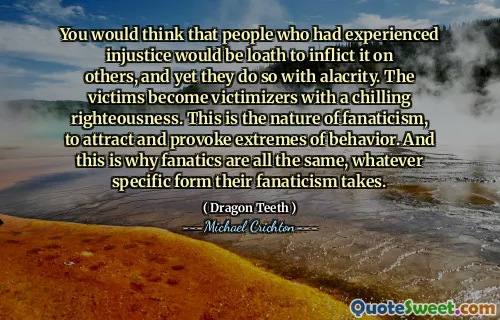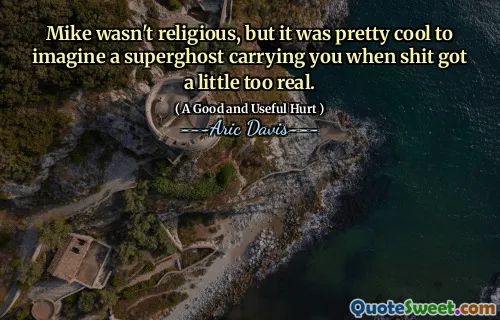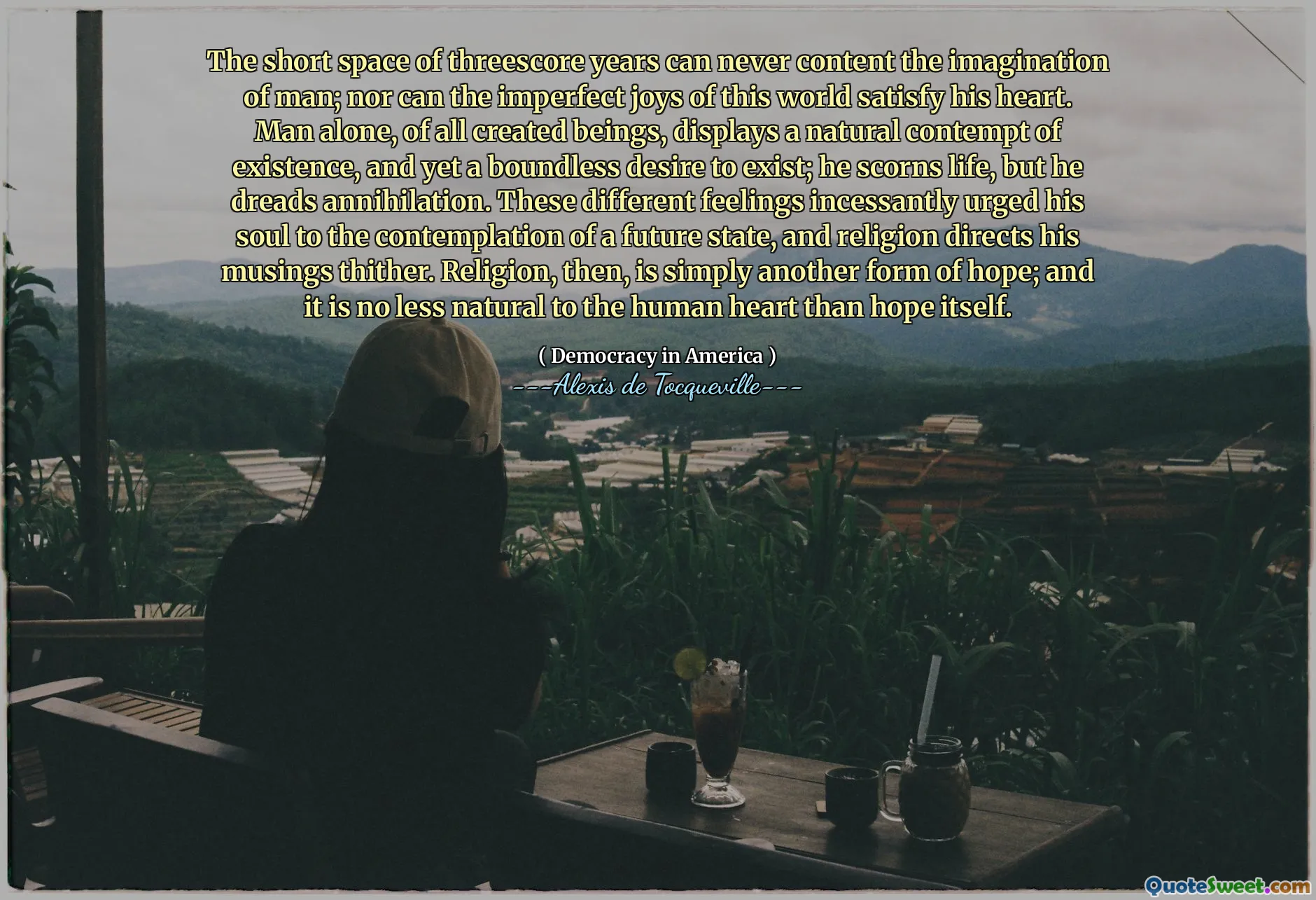
The short space of threescore years can never content the imagination of man; nor can the imperfect joys of this world satisfy his heart. Man alone, of all created beings, displays a natural contempt of existence, and yet a boundless desire to exist; he scorns life, but he dreads annihilation. These different feelings incessantly urged his soul to the contemplation of a future state, and religion directs his musings thither. Religion, then, is simply another form of hope; and it is no less natural to the human heart than hope itself.
This quote eloquently captures the paradoxical nature of human existence. It underscores how, within a relatively short lifespan—often constrained by the mortal bounds of approximately threescore years—humans continually grapple with profound existential questions. Our innate dissatisfaction with the ephemeral pleasures of worldly life drives us to seek meaning beyond the material, fueling a persistent curiosity about what lies beyond death. The commentary on man's unique attitude — simultaneously contemptuous of mere existence yet yearning to preserve it — highlights a fundamental aspect of the human condition: our deep-seated consciousness of mortality and the desire for eternal significance. Religion emerges here as a natural extension of this intrinsic hope, providing reassurance and guiding moral and spiritual contemplation about future states of being. It reflects not only a search for comfort but also an affirmation of hope amid life's uncertainties. This perspective suggests that hope and religion are vital for humanity's psychological stability, offering a framework to reconcile our awareness of life's brevity with our longing for permanence. It also invites reflection on how this duality has influenced cultural, philosophical, and societal developments—propelling civilizations to build lasting beliefs, traditions, and institutions that attempt to transcend individual mortality. Ultimately, the quote portrays the human soul's ceaseless quest for meaning, rooted in hope and sustained by the comforting structures of faith and spirituality.

